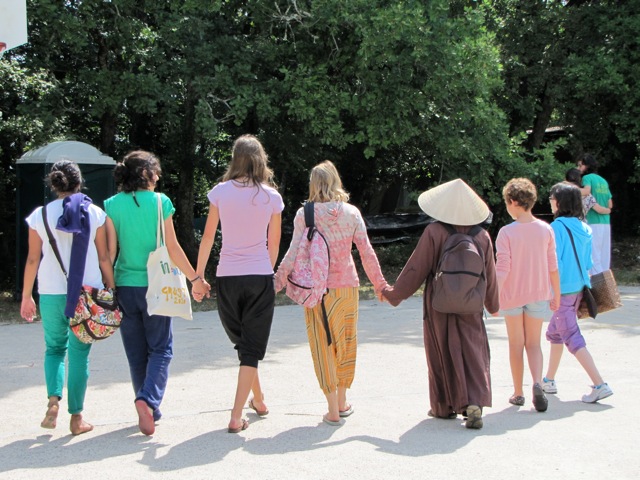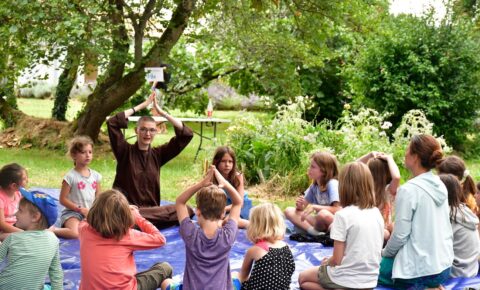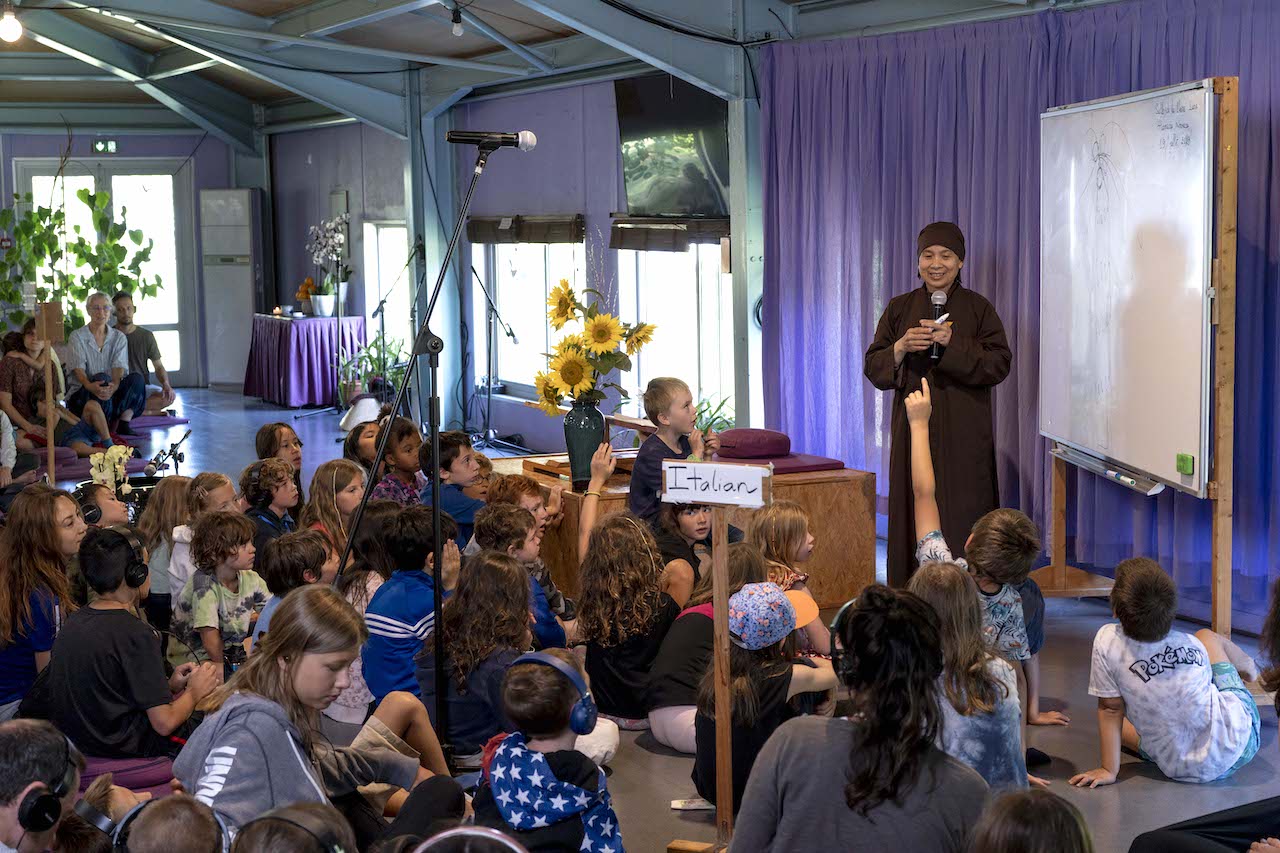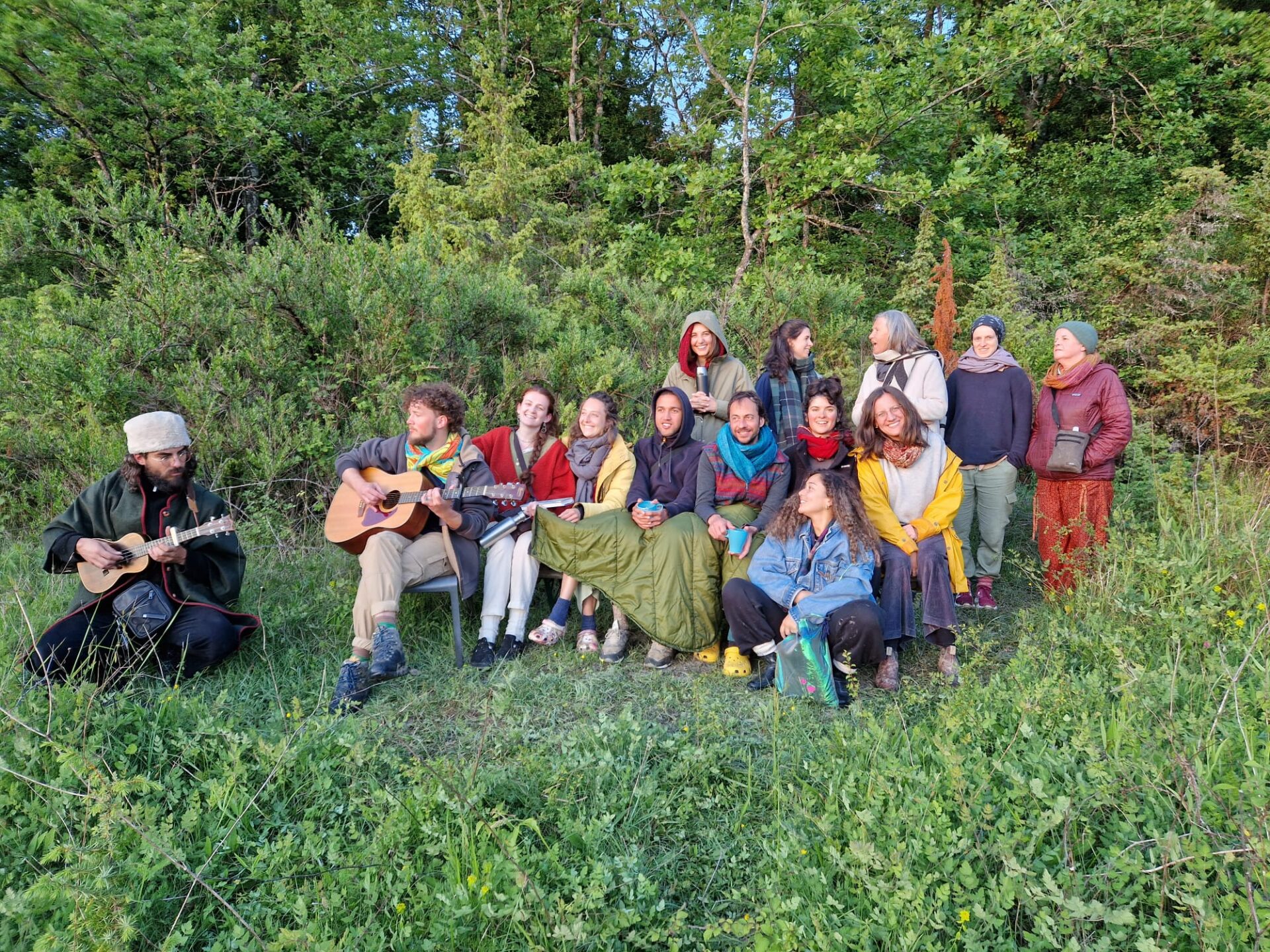The following is an excerpt of the panel conversation on the theme of
Resilience, Community, and Spirituality that took place in June 2023, during
the Earth Holder’s Retreat ‘Love is Freedom’. Our three panelists were Tho
Ha Vinh, Rehena Harilal, and Satish Kumar.
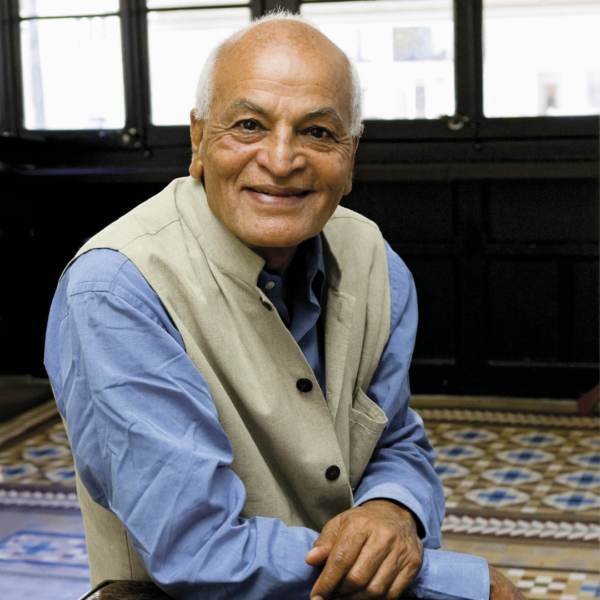

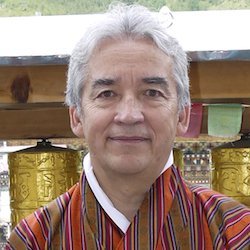
You can read more about our panelist’s and their sharing in Part One.
Sr Lang Nghiem: Thank you for explaining how you practice with anger. When we act from a place of love, rather than anger, we in fact process the anger; when we acknowledge it, when we don’t suppress it, it becomes the source of our love and compassion. Tho, what sustains you and what keeps you from engagement fatigue?
Tho Ha Vinh: The Four Noble Truths can be our starting point. The root cause of suffering is separation. Thay has emphasized inter-being as the core of his teaching. Satish explained beautifully how true, radical love is unconditional—it is not just an emotion, or a matter of preference.
If we touch what is the deepest in us, our fundamental humanity or spirit, then we can also become aware that it’s present in every single other being that we meet, human beings and all other life forms.
If we touch what is the deepest in us, our fundamental humanity or spirit, then we can also become aware that it’s present in every single other being that we meet, human beings and all other life forms. When you truly love, you become one with the object of your love, overcoming duality and separation, and transforming loneliness.
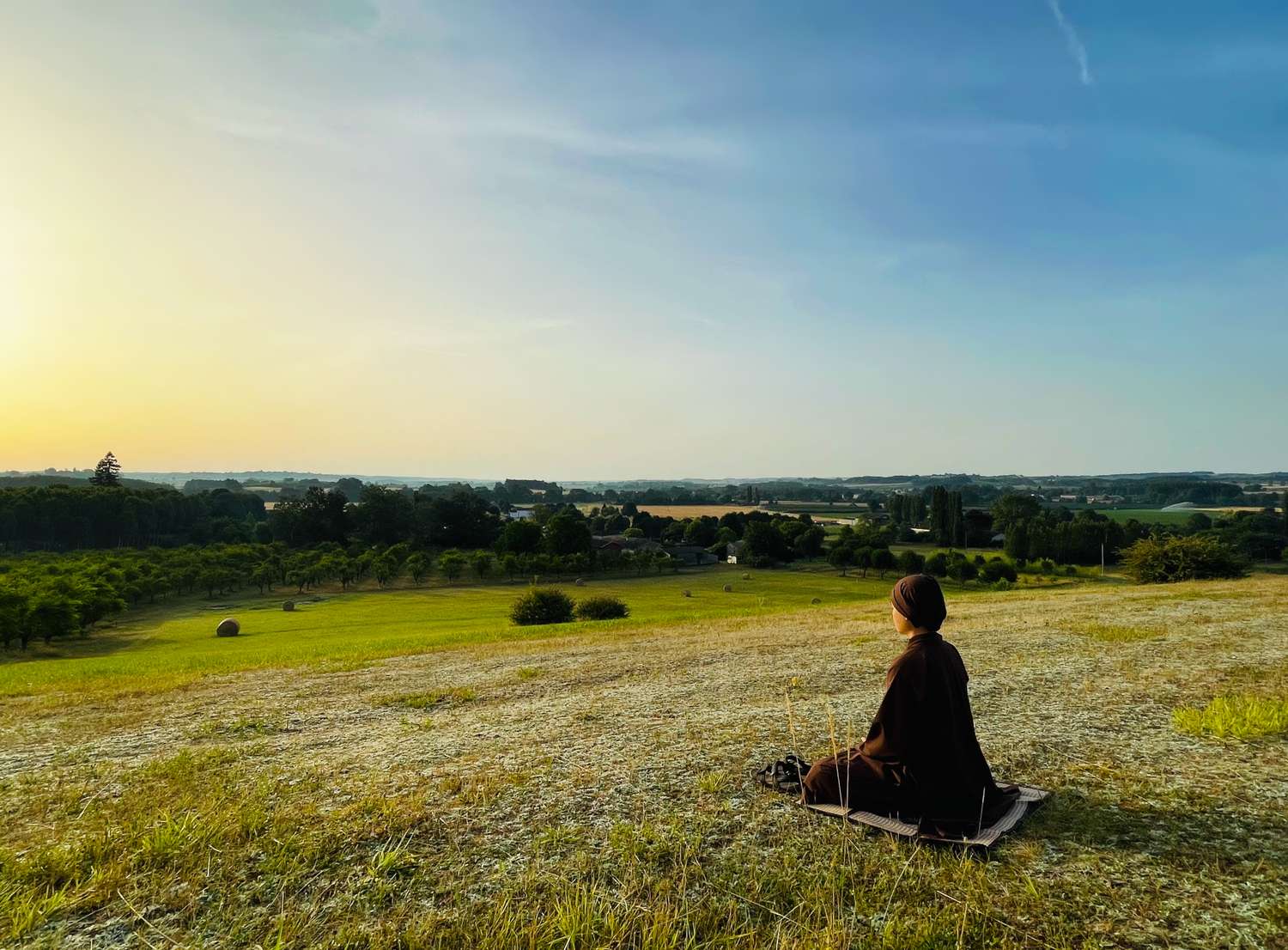
Love needs to be based on understanding. Rehena described it beautifully.
Even someone whose ideas, perceptions or viewpoints are radically different
from mine, if I make the effort to understand them, there is no duality, no
feeling of antipathy, anger, etc. What sustains me in being engaged without
engagement fatigue is the deep conviction of the non-duality between what
lives in me and in the world.
It’s easy to blame economic or political systems. However these systems are
but an expression of our collective consciousness; the way we as humans
think, feel, act and relate. This is why, by transforming our own
consciousness, however modest, we can help transform those systems.
Mindfulness empowers us to develop kindness, compassion, generosity and inclusiveness, giving us tremendous strength.
Sr Lang Nghiem: Some activists have doubts about the role of spirituality
in systems change. Where do you see the intersection between personal
transformation and systems change?
Satish Kumar: At Schumacher College we say that inner transformation
and outer transformation are two sides of the same coin. You cannot have
outer transformation, systems change, political change, economic change or
social justice without inner transformation, namely cultivating qualities like
compassion, love, kindness, generosity and understanding.
There’s no duality. When we cultivate that cosmic mind, we start to think of the whole cosmos as my country, the whole Earth as my home.

‘Eco’ means home. Humans are as much nature as trees, mountains and forests. Before I’m a Buddhist, Christian, or any other religion, love is my religion.
When you have that kind of understanding, you can bring social justice, build
equity, and work for economic justice. There’s no separation between me
and the world. Therefore, changing the world and changing myself are two
aspects of one single reality.
Rehena Harilall: I grew up in apartheid South Africa. From the time I was
four years old, my entire life was focused on social justice. I learned that as
activists, we need to look at the energy we are bringing. Are we using the
same energy that has been used to create the suppression, the separation,
to change the systems outside of ourselves? If so, we are just replacing one
system with another, we’re not really changing anything, because there is
still an attachment to my view as being the right view, the only view, and
the dominant view. Recognising this has been most important in my own
activist career.

Coming to this tradition has helped me understand that I was clinging to my
ego, that I thought getting it my way is the right way. I have learnt to
relinquish some of that. When we are engaging in systems social change,
we’re doing it in a way that is compassionate, rather than destructive.
Part of changing a system is to create a working alternative, with the right energy and intention.
Despair comes from thinking, “Nothing I’m doing is making a difference. This
is inevitable.” In fact, every little bit actually makes a difference. Every
breath, every step, every action does make a difference. Realizing this
generates hope, because there is always something I can do directly in the
present moment.
Sr Lang Nghiem: While bringing the ethical component into new narratives,
have you met with resistance and how do you navigate around that?
Satish Kumar: Crucially, inner transformation also includes changing our
world view. At the moment, our world view is that humans are above nature.
Therefore, we can do to nature what we like and as we like. Nature is
considered only a resource for the economy, it is only a means to an end.
How we see nature is an ethical question. We need to be prepared to change
this worldview. Nature has its own sanctity. Nature is life itself. Our modern
industrial, materialist worldview has not only changed nature into a resource
for the economy, it has also changed humans into a resource for the
economy. That world view has to change.
Human dignity and integrity of nature is an essential part of a new ethical world view. The economy needs to be in the service of humanity and nature.
Tho Ha Vinh: The vast majority of conflicts have economic roots, the will
for domination and power. We act now as if growth and wealth is the goal.
But the economic system is just one of the subsystems in human society and
should be serving the happiness and well-being of all human beings.



